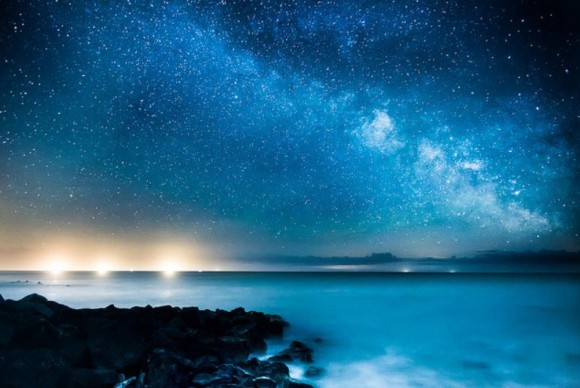An unemployed porno addict, sitting in his parents’ basement, playing video games, eating Lucky Charms out of the box with one hand while he lazily scratches his balls with the other. A dread-lock having, patchouli oil smelling, tie-die wearing, Phish listening, hula-hoop twirling space cadet. A burger flipping, acne having, socially inept, friendless loser… These are the common stereotypes associated with the term ‘pothead’. In a recent piece we published on pot farms, a debate erupted in the comments section, with some arguing that if you smoke pot, you’ll be poor, gay, and “washing dishes until you’re dead.”
Where these stereotypes originated remains a mystery to us. In reality, they couldn’t be further from the truth. Not only have
42% of Americans admitted to trying pot, but pot smokers have gone on to become some of the most successful people in our society. We’re not talking about Willie Nelson and Snoop. These guys are on the Forbes 500, they’re leading the free world, and they prove that all existing pothead stereotypes are nothing more than myths.
Sir Richard Branson
While the ‘Sir’ in front of this guy’s name puts him in some very elite company, it doesn’t automatically get him on this list. What does earn him a spot is the fact that he’s the 236th richest person in the world, founder of the Virgin empire, which encompasses everything from airlines to record stores to cell phones, and made his entire multi-billion dollar fortune from absolutely nothing. Not only does this man smoke weed, he gets high with his 21-year-old son. He has publicly stated that there’s nothing wrong with smoking pot, has petitioned for the legalization of pot, and even said that if it were legal, he’d sell it.
Rick Steves
Your name doesn’t become synonymous with ‘European Travel’ by accident. You can’t just take a bong hit, lay back in your bean bag and toss off a few ‘graphs on how awesome the Louvre is. And yet here’s Rick Steves, author of 27 top selling European travel guides, host of his own TV show and radio show, and a very outspoken pothead. He’s a member of the National Organization for the Reform of Marijuana Laws, and credits pot for turning him into a better travel writer by opening his mind to new things.
Aaron Sorkin
In fairness to tokers around the world, Sorkin is a bit more of a ‘drug addict’ than he is ‘pothead’. He started dabbling with weed and coke back in the late ’80s, has been in and out of rehab numerous times, and was arrested for possession of marijuana, mushrooms and crack in 2001. So yeah, he loves to smoke weed… but he also loves to freebase. Not cool, Aaron! However, the man’s drug problems have done little to hinder his success in Hollywood. His work on The West Wing, both as writer and producer, earned him multiple Emmy Awards, and countless nominations for other awards.
Michael Phelps
Mr. “Has More Olympic Gold Medals Than Anyone In History” made headlines this week when photos of him and a bong surfaced. Since the scandal, Phelps has given a few interviews decrying his “bad judgment,” promising it was a dumb mistake that never happened before and won’t happen again… but we know that’s bullsh*t. Phelps was hitting that bong like a pro, not daintily toking some little amateur joint. With this in mind, we’re going to go ahead and assume this wasn’t Phelps’s first time. It might be his last, but it definitely wasn’t his first. This means that you can become the most world class athlete of all time and be a pot smoker at the same time. Stereotype shattered.
Barack Obama
Almost every American President before Barry, from Washington to Clinton to Bush, has had a pot addled past. Clinton purportedly tried and failed to smoke a joint, Bush was a boozer, but messed with coke and pot from time to time, Washington even grew marijuana on his farm. But as far as we know, none have admitted to smoking as much pot as Obama. He wrote extensively about his stoner past in his book Dreams of My Father, and in a 2007 interview stated “When I was a kid I inhaled frequently. That was the point.” Anyone who wonders what kind of future a pothead can have should take a hard look at Barack Obama. Not only can you grow up to be ridiculously smart, you can grow up to be President.
Michael Bloomberg
The Mayor of New York’s last name is associated with ‘business’ and ‘success’, not ‘failure’ and ‘the munchies’. But if you’re one of those idiots who believes a pothead could never amount to anything, you’d have never guessed this was the way Bloomberg would turn out. Did he smoke pot when he was younger? In his own words “You bet I did. And I enjoyed it!”
Ted Turner
Ted is a rare breed of billionaire — he comes off as completely absent minded, incapable of even putting on his own pants. Yet he is a mega-mogul. He single-handedly invented the 24-hour news cycle with CNN, was named Time’s Man of the Year in 1991, is the largest private land owner in America, and also owns a few other TV stations, and the Atlanta Braves. So… owning lots of stuff? Not what you’d expect from a guy who grew pot in his college dorm room. Ted is also a major funder of the Kentucky Hemp Museum, along with renowned stoner Woody Harelson, and is a well known fan of the classic stoner cartoon Scooby-Doo.
Montel Williams
The talk show prince discovered pot late in life, and for good reason. Back in 1999 he was diagnosed with Multiple Sclerosis, and couldn’t find anything to suppress his symptoms. He tried all sorts of pain killers; none worked, and all had horrible side effects. So he decided to try medical marijuana (same thing as regular marijuana, FYI) and it worked wonders for him! Years later, he is one of MS’s most recognizable faces, one of medical marijuana’s staunchest defenders, and even though he’s baked all the time, still managed to host his own talk show until 2008, when it was unfortunately canceled. Well, at least he’s still got his weed.
Stephen King
We haven’t included many creative types on this list, mostly because they’re all potheads. Every actor, musician and artist ever is a huge pothead. It’s a fact, don’t dispute us. But writing 1,000 page novels is a slightly different process. You can’t just ‘jam out’ The Stand. Over the course of his career, both his output and his success have been unparalleled. He’s authored upwards of 50 novels and short stories which have sold a collective 500 million copies worldwide. He’s also been one of the most vocal proponents for the legalization of marijuana, calling laws against the drug “ridiculous,” and stating that “I think that marijuana should not only be legal, I think it should be a cottage industry.” It makes perfect sense. You’d have to be stoned to come up with some of the sh*t this guy has.
Arnold Schwarzenegger
The Governator is the only man on this list who is actually on video smoking weed. In the classic documentary Pumping Iron, he is seen smoking, and loving, a joint. But hey man, that was the’70s, right? Things have chanced since then. Haven’t they? Well, Schwarzenegger hasn’t been puffing since his election to office, but he has presided over California’s recent medical marijuana renaissance. Now anyone who wants one can get a pot prescription in the state, which gives them legal access to some of the best weed in the country, and even allows them to grow plants in their own home. According to Arnold, marijuana “is not a drug, it’s a leaf.”






 Body
language is a form of non-verbal communication, which consists of body
posture, gestures, facial expressions, and eye movements. Humans send
and interpret such signals almost entirely subconsciously.
Body
language is a form of non-verbal communication, which consists of body
posture, gestures, facial expressions, and eye movements. Humans send
and interpret such signals almost entirely subconsciously.






 In two mind-blowing hours, Hawking reveals the wonders of the cosmos to a new generation. Delve into the mind of the world's most famous living scientist and reveal the splendor and majesty of the universe as never seen before. See how the universe began, how it creates stars, black holes and life - and how everything will end
In two mind-blowing hours, Hawking reveals the wonders of the cosmos to a new generation. Delve into the mind of the world's most famous living scientist and reveal the splendor and majesty of the universe as never seen before. See how the universe began, how it creates stars, black holes and life - and how everything will end 









